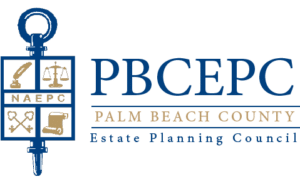
By Suzanne S. Weston
The Glenmede Trust Company, N.A.
As Generations X, Y and Z begin to overtake the hugely influential baby boomers as trust beneficiaries, a fresh look at impact investing and how it affects your irrevocable trust and loved ones is a good idea.
Oceans of information about publicly traded companies is just a touch screen away – allowing investors to judge daily if a company’s moral code and societal goals mirror their own. They then invest in the ones they like and shun those they find contrary. This growing investment paradigm is generally known as impact investing.
Basically, impact investing includes two approaches: Socially Responsible Investing (SRI) and Environmental Social & Governance (ESG) investing. SRI is driven by negative screening. Meaning excluding certain companies and industries (e.g., “sin stocks” such as tobacco). This approach can lead to significant deviations of a portfolio from a benchmark – potentially increasing risk.
More recently, ESG investing has come into vogue. ESG investing employs positive screening. Meaning overweighting companies with high ESG profiles and underweighting those with low ESG profiles. This approach may allow a portfolio to be more closely aligned with a benchmark than if an exclusionary approach were used, resulting in potentially less relative risk.
According to the US SIF Foundation’s “Report on US Sustainable, Responsible and Impact Investing Trends”, as of 2018 there were more than $12 trillion assets using SRI strategies out of the $46.6 trillion under professional management in the U.S.
Importantly, impact investing crosses all generations. Allianz Life Insurance Company of North America’s ”ESG Investor Sentiment Study” reported that 64% of Gen-Z (millennials) said ESG issues are important in their investing decisions compared to 54% of Gen-Xers and 42% of boomers. Further, 61% of boomers, 51% of millennials and 48% of Gen-Xers say the reason they want to participate in ESG investing is to encourage companies to be good corporate citizens.
So, what can trustees do when a beneficiary asks them to consider her personal values when investing irrevocable trust assets? First, trustees should look to the trust document to determine if it provides guidance. Then, trustees must consider the governing law of the trust, including the prudent investor rule and the duties of loyalty and impartiality.
Florida’s prudent investor statute emphasizes a total return and diversification approach. Trustees’ investment decisions are to be made in the context of the risk and return of the ‘whole portfolio’ rather than isolating individual investments for scrutiny. Thus, the prudent investor rule may alleviate the trustee’s liability for investing in an individual security which underperforms when the overall portfolio has positive returns.
By incorporating ESG investing and the prudent investor rule, it seems trustees may have the ability to diversify trust assets, potentially obtain overall positive returns and incorporate the beneficiary’s values. However, there are additional hurdles trustees should consider.
Florida’s prudent investor statute provides that trustees have a duty to invest trust assets “as a prudent investor would considering the purposes, terms, distribution requirements, and other circumstance of the trust.” The statute does not specifically grant trustees the authority to consider the beneficiaries’ personal values. As of 2019, Delaware was the only state to address this issue by revising its statute so that trustees when making investment decisions can consider “the beneficiaries’ personal values, including the beneficiaries desire to engage in sustainable investing strategies that align with the beneficiaries’ social, environmental, governance or other values or beliefs of the beneficiaries.”
Although it is clear that under Delaware law trustees can consider a beneficiary’s values, it does not appear that trustees may adhere to the values of one beneficiary, while ignoring differing values of other beneficiaries. Trustees have a duty of loyalty to administer the trust in the interests of the beneficiaries and, absent evidence of a grantor’s intent to the contrary, a duty of impartiality which requires trustees to treat beneficiaries equally.
So, what can you do if impact investing is important to your family who wants the benefits, such as tax and asset protection, of a multigenerational irrevocable trust? Perhaps, consider the following: include impact investing provisions in the trust document permitting or directing the trustees to invest accordingly; name an investment advisor to direct the trustees to invest in impact strategies; and create the trust in Delaware to benefit from Delaware law.
For existing irrevocable trusts that have no reference to impact investing, trustees and beneficiaries may have options. Depending on the circumstances, it may be possible to obtain the beneficiaries’ consent to impact investing strategies. Or, perhaps the trust could be decanted or the parties could enter into a non-judicial settlement agreement to add impact investing provisions.
As people are increasingly incorporating their personal values in their investing decisions, it is important to consider including impact investing provisions when planning for loved ones.
Suzanne S. Weston is a Wealth Advisor and Relationship Manager at The Glenmede Trust Company, N.A. Founded in 1956 as a trust company, Glenmede provides highly customized investment, fiduciary and wealth advisory services to high-net-worth individuals and families, and endowment, foundation and institutional clients, overseeing nearly $40 billion of assets under management.
Note: This article is not intended as personalized advice. The author takes sole responsibility for the views expressed herein and these views do not necessarily reflect the views of the author’s employer or any other organization, group or individual. This material has been prepared for general informational purposes only, and is not intended to provide, and should not be relied on for, tax, legal or accounting advice. Readers should consult their own tax, legal and accounting advisors to seek advice on individual circumstances.
